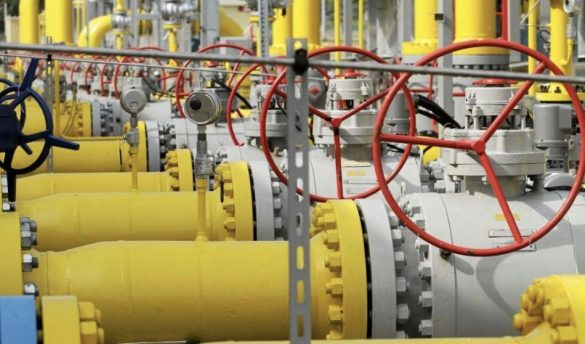Key Points
- Ukraine’s decision to end the gas transit deal affects Europe.
- Russia says the situation is complex and requires attention.
- European nations face higher costs despite supply diversification efforts.
Russia stated on Monday that greater attention is needed to address the “very complicated” scenario involving European nations that depend on its gas deliveries through Ukraine. This follows talks between Slovak Prime Minister Robert Fico and Russian President Vladimir Putin on Sunday on the gas transit agreement, which is scheduled to expire at the end of the year.
Ukraine set to end Russian gas transit deal by 2024
Citing its reluctance to back Moscow’s military endeavors, Ukraine has said it will not extend the five-year deal. About half of Russia’s pipeline gas shipments to Europe are accounted for by the agreement; if it expires, Slovakia, Italy, Austria, and the Czech Republic are probably going to be the countries most affected.
Through the Black Sea-crossing TurkStream pipeline, the Kremlin-controlled energy behemoth Gazprom continues to supply gas to Europe. For nations that depend on this channel, the imminent loss of the Ukrainian transit route presents difficulties.
As stated by Reuters, Slovakia admitted the shift would raise expenses even though it has diversified its supply contracts and claimed it can handle the loss of eastern suppliers. In order to preserve transit capacity, Slovak officials have placed a strong emphasis on maintaining the Ukrainian route. Despite receiving Russian gas through TurkStream as well, Hungary has also indicated interest in maintaining the connection.
Kremlin calls for attention to gas transit complications
Fico’s position on continuing to rely on Russian natural resources has drawn criticism from Ukrainian President Volodymyr Zelenskyy, who described it as a “big security issue” for Slovakia and Europe. Zelenskyy said last week that the transit agreement would be extended provided payments to Russia were delayed until after the conflict, which is an improbable requirement that Moscow would agree to.
Kremlin spokesperson Dmitry Peskov emphasized the situation’s complexity while restating the Kremlin’s stance on Monday. “There is now a very complicated situation here that requires increased attention,” Peskov stated.
European gas markets have already been impacted by the transit deal’s uncertainties. According to LSEG statistics, the benchmark front-month contract at the Dutch TTF gas hub increased by 1.52 euros to 45.33 euros per megawatt hour on Monday.
The area would have to deal with possible supply disruptions as Putin indicated last week that no new agreement will be made with Ukraine to transport Russian gas via its borders to Europe.



